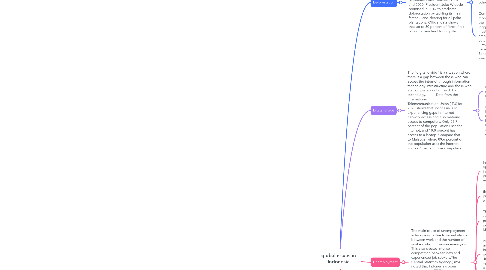
1. Deforestation
1.1. Indonesia is one of the top five countries in the world that has lost large areas of forest over the past two decades. According to data from Global Forest Watch, Indonesia lost 9.75 million hectares of primary forest between 2002 and 2020. President Joko Widodo promised in 2014 to eradicate deforestation by tackling its main factor – land clearing for oil palm plantations. Official data shows that up to 80 percent of forest fires occur to clear land for oil palm.
1.1.1. It is very important to socialize to the community. If awareness in the community has grown, this illegal logging can be avoided.
1.1.2. Communities or institutions that have carried out illegal logging must be held responsible for the damage done to the forest. Improvements can be made through actions such as reforestation or replanting in community forest areas, not littering, utilizing natural resources other than wood, and others.
1.1.3. Communities are expected to play a role in monitoring and controlling together with the local government. To prevent illegal logging, strict laws are needed. The law must be able to regulate restrictions on the amount of forest cutting, planning for forest cutting, and the obligation to replant. Firmly cracking down on illegal loggers is necessary to provide a deterrent effect. Sanctions given can be in the form of warnings, threats, and imprisonment.
2. Digital divide
2.1. The "digital divide" is a situation where there is a gap between those who can access the internet through information technology infrastructure and those who are completely out of reach by technology. Data from the International Telecommunication Union (ITU) for 2020 shows that Indonesia is still experiencing gaps in internet network access and also material access to computers. Only 53.7 percent of the population uses the internet, and 18.8 percent has access to a laptop. Compare that to Malaysia, where 89.6 percent of the population uses the internet and 77.6 percent have computers.
2.1.1. Indonesia needs to ensure that all regions have adequate access to information and technology.
2.1.2. that the government has done The Indonesian Ministry of Communication and Information has invested in infrastructure to improve people's welfare with access to information and communication technology.
3. Unemployment
3.1. The main cause of unemployment in Indonesia is due to an imbalance between work and the number of workers which increases every year. This also creates intense competition between new and experienced job seekers.The Central Statistics Agency (BPS) noted that Indonesia's open response rate (TPT) in the August period was recorded at 5.86% or as many as 8.41 million people. This figure is lower when compared to August 2021 which reached 6.49% or 9.1 million people.
3.1.1. Indonesia must increase job opportunities and disseminate information on job vacancies properly in all media will make it easier for jobseekers to get jobs
3.1.2. the Indonesian government should provide job training for workers who are less skilled
3.1.3. The government should take steps in this unemployment area by providing business capital loans to people who have mature business ideas.
3.1.4. Another way to overcome unemployment is to provide business workshops. the government should do this training to provide information that opening your own business can be a new opportunity to create jobs.
3.1.5. The government must be able to work with companies to provide easy working conditions in several positions that everyone can easily enter.
3.1.6. Frictional unemployment is caused by a long recruitment process so that job seekers wait too long to wait for confirmation from a company. This will complicate the jobseeker. Preferably, an evaluation during the recruitment process can be carried out so that it can shorten the acceptance time. So, applicants can quickly receive information whether accepted or not.
4. Over-exploitation of marine resources
4.1. Exploitation of marine resources is illegally taking marine resources from other regions or countries.Massive exploitation of fish occurs throughout Indonesian waters. Mapping of fishing levels by the Ministry of Maritime Affairs and Fisheries (MMAF) shows that most demersal, large pelagic and shrimp exploitation status has reached its maximum point. Fishing in some areas is even included in the red zone because it exceeds the set limits.
4.1.1. The way to manage marine resources is that we should explore, apply the principles of sustainable development, and increase marine conservation efforts.
4.1.2. the government must strengthen regulations in maintaining marine health by tightening rules and regulations in fishing so that over-exploitation does not occur.
4.1.3. We also have to educate Indonesian citizens about the importance of maintaining ocean health and not over-exploiting marine life.
5. Freedom of Religion
5.1. Freedom of religion is a principle that supports individual or societal freedom to practice religion or belief in private or public space. The three dominant issues that often occur in Indonesia are banning activities, disruption of places of worship, and accusations of blasphemy.In 2021, Setara Institute's data collection shows that there has been a decrease in the number of violations on freedom of religion and belief. Compared to 2020, where there were 180 violations and 424 violations, in 2021 there were 171 violations and 318 violations.
5.1.1. Religious moderation is our way, as religious people, to protect Indonesia. We certainly don't want to suffer the fate of our brothers and sisters in a country where people's lives are chaotic and the country is even threatened with dissolution due to socio-political conflicts based on differences in religious interpretations. We must learn from existing experiences. Religious moderation can be a solution to creating social harmony while maintaining freedom in carrying out religious life, respecting diversity of interpretations and different views, and not getting caught up in extremism, intolerance, and violence in the name of religion.
5.1.2. Dare to embrace vulnerable groups to minimize incidents.
